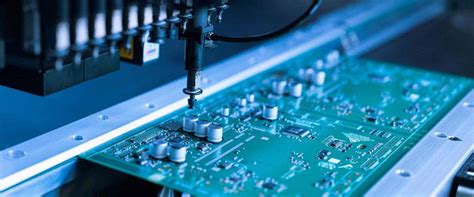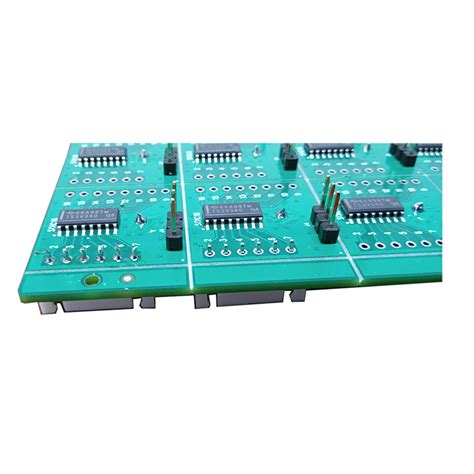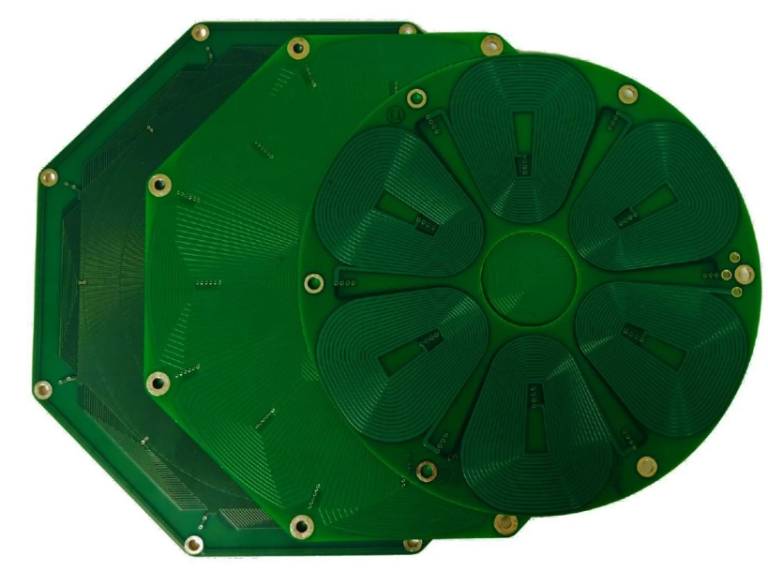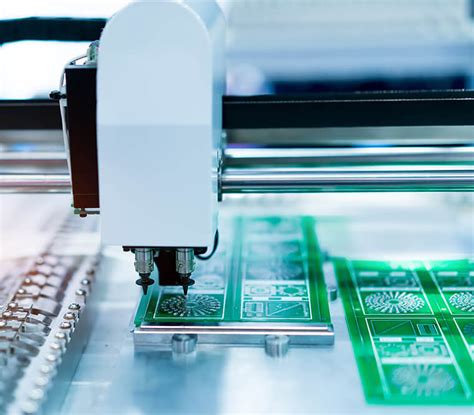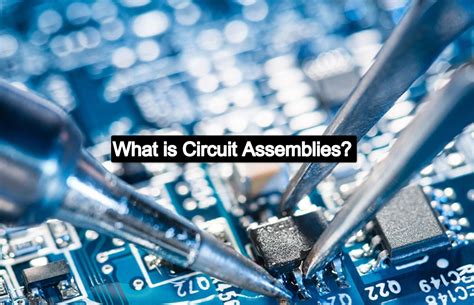Local PCB Manufacturers for Low-Volume Prototype Boards
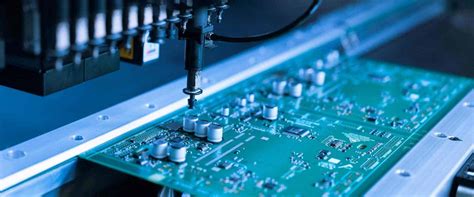
Key Takeaways
When exploring PCB manufacturing options for low-volume prototypes, proximity matters. Local PCB manufacturing companies often provide faster turnaround times—sometimes as quick as 24-48 hours—which is critical for iterative design testing. These nearby suppliers typically support KiCad and Gerber file formats, ensuring seamless compatibility with popular design tools.
Tip: Always verify file specifications with your chosen manufacturer to avoid delays.
Cost efficiency is another advantage. By reducing shipping logistics, local PCB manufacturing cost stays competitive, especially for orders under 10 boards. Many providers cater to hobbyists and startups, offering expert guidance on design rules or material selection—ideal if you’re new to PCB manufacturing business.
For small-batch projects, prioritize suppliers that balance affordability with quality. Some local shops even offer pricing tiers based on layer count or surface finishes, making it easier to stay within budget.
Finally, don’t overlook the value of in-person collaboration. Visiting a nearby facility lets you discuss requirements face-to-face, ensuring your prototype aligns perfectly with technical expectations. Whether you’re refining a hobby project or scaling an engineering concept, local partnerships streamline the entire process.
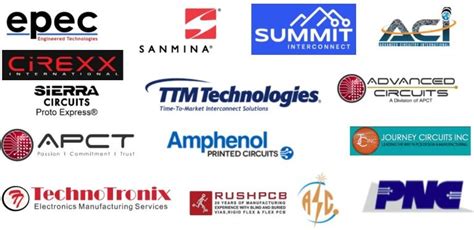
Local PCB Prototyping Services Near You
When searching for PCB manufacturing solutions, proximity matters—especially for low-volume prototype boards. Local PCB manufacturing companies often provide faster turnaround times compared to offshore suppliers, allowing you to iterate designs within days rather than weeks. Geographic proximity also simplifies communication, enabling real-time design feedback and reducing the risk of errors in Gerber file submissions.
Many nearby providers specialize in cost-effective prototyping, with PCB manufacturing cost structures tailored for hobbyists and startups. For example, some offer tiered pricing based on board complexity, while others provide discounts for repeat orders. Below is a comparison of key factors to consider when choosing local vs. offshore services:
| Factor | Local PCB Manufacturing | Offshore Alternatives |
|---|---|---|
| Turnaround Time | 3-5 business days | 2-4 weeks |
| Design Support | Direct engineer access | Email-only communication |
| Shipping Costs | Lower (domestic rates) | Higher (international fees) |
| Minimum Order Quantity | 1-10 boards | 100+ boards |
By partnering with a local PCB manufacturing business, you gain flexibility in order size and material choices, such as FR-4 or flexible substrates. Providers that support KiCad workflows streamline file preparation, ensuring seamless transitions from design to production. Whether you’re testing a new circuit or refining a functional prototype, nearby services balance speed, affordability, and technical expertise—critical for avoiding delays in early-stage projects.
Low-Cost PCB Makers for Hobbyists
When starting a DIY electronics project, balancing quality and PCB manufacturing cost is crucial. Many local PCB manufacturing companies now cater specifically to hobbyists by offering scaled-down pricing models for prototypes. These providers typically reduce expenses through standardized material options (like FR-4), simplified panelization, and shared production runs. For example, opting for two-layer boards instead of four-layer designs can cut PCB manufacturing expenses by 30–50%, while still maintaining functional reliability.
Look for fabricators that prioritize low-volume orders and transparent quoting tools. Some PCB manufacturing businesses even provide instant online calculators where you input board dimensions, layer count, and turnaround time to estimate costs. This approach eliminates surprise fees—a common pain point for beginners. To further economize, consider manufacturers offering "barebones" services: no-frills finishes like HASL instead of ENIG, or skipping electrical testing for non-critical prototypes.
Regional suppliers often outperform overseas alternatives for hobbyist needs, as proximity enables faster revisions. Many now support budget-friendly order minimums (as low as 5–10 boards) with 48-hour prototyping options. Always verify compatibility with your design software—KiCad and Eagle users should confirm Gerber file acceptance—to avoid costly file conversion delays. By aligning your requirements with these specialized PCB manufacturing solutions, you maintain project momentum without overspending.
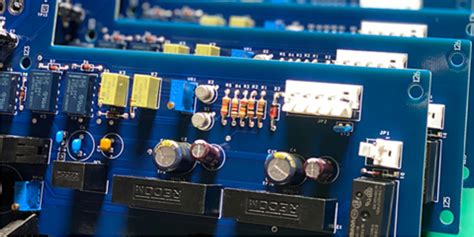
KiCad-Compatible PCB Fabrication Options
When searching for PCB manufacturing companies that align with your design workflow, verifying KiCad compatibility is crucial. Many local PCB manufacturing providers now directly accept KiCad project files or standard Gerber exports, eliminating manual format conversions and reducing errors. This integration streamlines prototyping, especially for low-volume orders where PCB manufacturing cost efficiency matters.
Look for fabricators offering design rule checks (DRCs) tailored to KiCad’s parameters, ensuring your board layout meets their production capabilities. Some PCB manufacturing business operators even provide customizable templates for common KiCad board configurations, accelerating the quoting process. For beginners, this compatibility reduces the learning curve—you can focus on design iteration rather than file troubleshooting.
Local suppliers often pair KiCad support with real-time communication, allowing you to clarify layer stack-ups or material choices before finalizing orders. This proactive approach minimizes delays, a key advantage when balancing PCB manufacturing cost and tight timelines. Always confirm whether their systems auto-detect KiCad-specific annotations (like edge cuts or mounting holes) to avoid fabrication mismatches.
By prioritizing KiCad-ready partners, you gain access to specialized expertise while maintaining control over prototyping budgets—a win-win for engineers refining compact or high-frequency designs.

Fast-Turnaround PCB Manufacturing Locally
When time-sensitive projects demand rapid iteration, partnering with PCB manufacturing companies in your area ensures you avoid lengthy shipping delays. Local providers specializing in low-volume prototype boards often offer same-day quoting and production cycles as fast as 24–48 hours, enabling you to test designs quickly and refine them without bottlenecks. These services are particularly valuable for startups or engineers working on tight deadlines, where even a 24-hour delay can disrupt project timelines.
By prioritizing PCB manufacturing hubs near your location, you gain direct access to technical support teams who can review Gerber files for manufacturability issues before production begins. This proactive approach minimizes errors and reduces PCB manufacturing cost overruns caused by design revisions. Many local fabricators also provide real-time order tracking, giving you visibility into each stage of the process—from material sourcing to final quality checks.
For hobbyists balancing affordability and speed, some PCB manufacturing business operators offer tiered pricing models. For example, opting for a 1-layer board with standard FR-4 material can slash costs while maintaining rapid delivery. To compare service tiers and lead times from trusted local vendors, explore this regional directory. Always confirm whether your chosen provider accommodates expedited orders during peak demand periods to avoid unexpected delays.
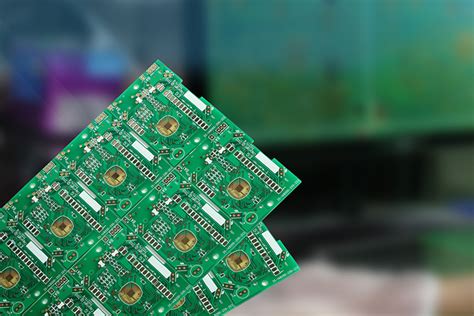
Expert Guidance for PCB Design Beginners
Navigating PCB manufacturing for the first time can feel overwhelming, but partnering with local PCB manufacturing companies ensures access to hands-on support tailored to your project’s needs. Many nearby providers offer design review services to catch errors in Gerber files or layer stack-ups before production begins, saving you time and reducing costly revisions. When estimating PCB manufacturing cost, beginners often overlook factors like material selection (FR-4 vs. high-frequency laminates) or finish type (ENIG vs. HASL)—details your local fabricator can clarify through real-time consultations.
For prototyping, prioritize manufacturers that balance PCB manufacturing business expertise with educational resources, such as interactive impedance calculators or solder mask thickness guidelines. A common pitfall is designing traces too narrow for your chosen facility’s capabilities, which local engineers can help you adjust using their in-house design rules. Transitioning smoothly from KiCad outputs to production-ready files becomes simpler when you can discuss tolerances and drill sizes face-to-face. By leveraging regional providers’ DFM (Design for Manufacturability) checks, you’ll not only avoid assembly headaches but also build foundational skills for scaling future projects.
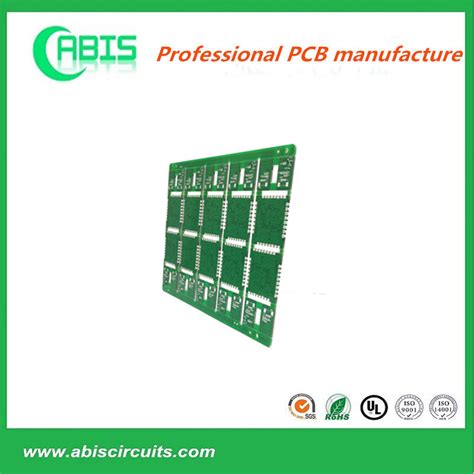
Affordable PCB Prototypes Under 2
When sourcing PCB manufacturing services for prototypes, balancing quality and PCB manufacturing cost is critical. Local PCB manufacturing companies specializing in low-volume orders often provide per-board pricing below $2 for simple designs, making them ideal for testing concepts without overspending. These providers optimize costs by streamlining processes like panelization and material selection while maintaining industry-standard tolerances. For example, single-layer FR-4 boards with basic silkscreen options typically fall within this budget-friendly range.
To achieve sub-$2 pricing, ensure your design aligns with manufacturers’ standard specifications—limiting board size, layer count, and specialty finishes. Many local PCB manufacturing business operations offer instant quoting tools that calculate expenses based on uploaded Gerber files, helping you identify cost drivers before ordering. Some facilities further reduce PCB manufacturing expenses through bulk-order discounts or shared panel space for multiple designs.
Always verify whether the quoted price includes essential services like electrical testing or DFM checks, as hidden fees can negate apparent savings. Partnering with nearby PCB manufacturing companies also minimizes shipping costs and delays, ensuring your prototypes arrive faster for iterative testing—a key advantage when refining designs under tight deadlines.
Gerber File PCB Production Near You
When selecting PCB manufacturing services for prototype projects, verifying Gerber file compatibility should top your checklist. Most local PCB manufacturing companies now support modern design formats like KiCad, ensuring seamless file transfers and minimizing production delays. By choosing nearby providers, you gain the advantage of real-time communication to clarify layer stack-ups or drill specifications—critical when optimizing PCB manufacturing cost for low-volume orders.
Local shops specializing in Gerber file PCB production often offer design rule checks (DRCs) at no extra charge, helping you avoid costly revisions. For instance, a 2-layer board with standard FR-4 material typically ships within 3–5 days when using regional partners, compared to overseas alternatives. This speed is invaluable for iterating prototypes or meeting tight deadlines.
Additionally, proximity allows direct consultations on material choices—like high-frequency substrates or flexible PCB options—tailored to your project’s needs. Many PCB manufacturing businesses provide instant quotes online after uploading Gerber files, letting you balance budget and turnaround time transparently. Whether you’re testing a new sensor layout or refining a power distribution network, leveraging local expertise ensures your design aligns with fabrication realities before committing to production.
Small-Batch PCB Suppliers in Your Area
When sourcing PCB manufacturing services for limited-run projects, local suppliers specializing in small batches offer distinct advantages. Unlike mass-production-focused PCB manufacturing companies, these providers prioritize flexibility, allowing you to order as few as 5-10 boards without compromising quality. This approach minimizes upfront PCB manufacturing cost while maintaining precision for prototypes or niche applications.
Many regional suppliers streamline processes for KiCad or Gerber file submissions, ensuring compatibility with popular design tools. Their expertise in PCB manufacturing business models tailored to engineers and startups often includes design reviews to catch errors early—saving time and resources. Proximity also plays a role: shorter shipping distances mean faster delivery times, critical when iterating designs under tight deadlines.
Cost structures vary, but local providers frequently offer tiered pricing based on board complexity rather than quantity. For example, 2-layer prototypes might cost significantly less per unit than 4-layer designs due to material and labor differences. Additionally, some suppliers provide DFM (Design for Manufacturability) checks at no extra charge, helping optimize layouts for cost efficiency.
By partnering with nearby PCB manufacturing specialists, you gain access to scalable solutions that balance affordability with technical support—ideal for bridging the gap between prototyping and full-scale production.
Conclusion
When selecting PCB manufacturing partners for low-volume prototypes, proximity plays a pivotal role in streamlining your workflow. Local PCB manufacturing companies not only reduce shipping delays but also enable face-to-face collaboration, ensuring design adjustments are implemented swiftly. For hobbyists and engineers alike, balancing PCB manufacturing cost with quality is critical—nearby providers often offer competitive pricing for small batches without compromising on material standards or turnaround times.
Many regional suppliers specialize in supporting niche requirements, such as KiCad-compatible designs or Gerber file optimization, making them ideal for iterative prototyping. Their expertise in PCB manufacturing business dynamics allows them to guide newcomers through design-for-manufacturing (DFM) principles, helping avoid common pitfalls like improper trace spacing or incomplete layer alignment.
By leveraging local networks, you gain access to rapid feedback loops and tailored technical support, which are invaluable for refining prototypes before scaling. Whether you’re testing a novel circuit or preparing a limited-run product, partnering with nearby experts ensures your project remains agile and cost-effective from concept to completion.
FAQs
How do local PCB manufacturing services handle design validation?
Most providers use automated DFM checks to verify your Gerber files, ensuring compatibility with their production processes. This step helps catch errors before committing to fabrication.
What factors influence PCB manufacturing cost for low-volume orders?
Material selection, board complexity, and turnaround time are primary cost drivers. Local suppliers often offer tiered pricing, with discounts for repeat orders or slightly extended deadlines.
Can PCB manufacturing companies accommodate mixed-technology boards?
Many local fabricators support hybrid designs combining through-hole and surface-mount components, though this may affect both cost and production timelines. Always confirm capabilities before finalizing designs.
How does proximity impact PCB manufacturing business operations?
Nearby facilities enable faster shipping and easier communication. Some providers offer in-person consultations for complex projects, reducing the risk of misunderstandings in technical specifications.
What quality certifications should you verify with PCB manufacturing partners?
Look for ISO 9001 compliance and UL recognition. For specialized applications, inquire about IPC-A-600 standards adherence to ensure reliability in your final prototypes.
Need Expert Support for Your PCB Design?
For personalized assistance with your next project, please click here to connect with experienced engineers who specialize in low-volume prototyping.

